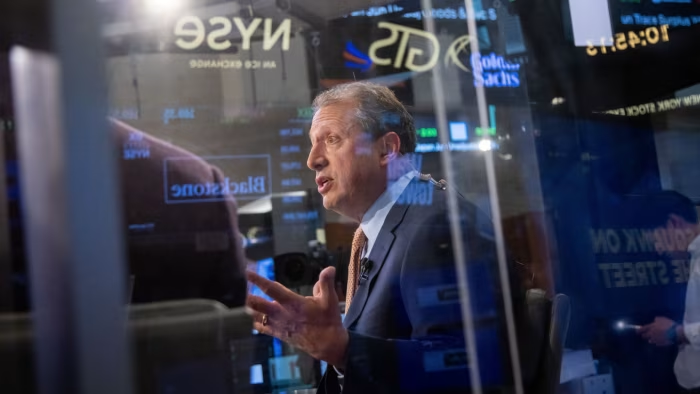Unlock the White House Watch newsletter for free
Your guide to what Trump’s second term means for Washington, business and the world
New York City’s top finance official has urged three of the city’s biggest pension funds to drop BlackRock as a manager of more than $42bn, as the metropolis looks to use its weight in markets to tackle climate change.
Brad Lander, the city comptroller, on Wednesday said BlackRock and two other asset managers, Fidelity and PanAgora, had failed “to address climate risk with the seriousness we expect” as he recommended the pension funds begin reviewing new financial advisers to manage their stock portfolios.
Lander, a Democrat, joins a broadening group of elected officials who are seeking to influence environmental and social causes through the investment choices of their pension plans, putting giants such as BlackRock and State Street in their crosshairs.
His push aims to counter gains that conservative activists made over the past three years as campaigns to divest from asset managers that sought to limit their investments in coal and oil and gas entities took shape.
Texas in 2022 blacklisted several asset managers, including BlackRock, for what it called a fossil fuel “boycott”. Last year the state’s attorney-general alongside 10 Republican-led states sued the three largest US index fund managers over their coal investment policies.
Lander said BlackRock was “unable” to meet several of the pension systems’ climate expectations, including encouraging portfolio companies to take “concrete” actions, such as setting net zero goals and adopting clear transition plans.
The outgoing New York City comptroller, who campaigned alongside mayor-elect Zohran Mamdani ahead of his victory this month, is considering a run for US Congress.
As part of his recommendation, Lander criticised BlackRock’s interpretation of guidance from the US Securities and Exchange Commission in February, which he said was more conservative than rival asset managers. The SEC guidelines were viewed as an attack on the use of environmental, social and governance factors in investing and prompted some money managers to cancel meetings they had with companies.
“[BlackRock CEO] Larry Fink has said out loud climate risk is financial risk,” Lander told the Financial Times, labelling the decarbonisation plan BlackRock submitted to the city as “inadequate”.
Lander said he did not “buy” BlackRock’s interpretation of the SEC guidelines and pointed out that State Street, which is the New York City pension systems’ second-largest manager, was demonstrating it was possible to meet the city’s climate expectations.
“Whether [BlackRock is] scared of the Trump administration or looking for an excuse, what I do know is climate risk is financial risk . . . and we need asset managers who attend to the long-term risks in our portfolio,” Lander told the FT.
The recommendation from Lander’s report does not affect about $9bn of holdings BlackRock manages for the city’s pensions, which include investments in mortgage, private and Treasury markets.
Armando Senra, who runs BlackRock’s institutional business in the Americas, said the company had met with the city’s pension investment team and provided it with more extensive climate engagement options.
“You accused BlackRock of abdicating its financial duty and putting New York City’s pensions at risk,” Senra said. “These statements are another instance of the politicisation of public pension funds, which undermines the retirement security of hardworking New Yorkers.”
A spokesperson for comptroller-elect Mark Levine said he “appreciates the work reflected in the Net Zero Implementation Plan update and will review these recommendations with the trustees”.
Fidelity and PanAgora did not immediately respond to requests for comment.
